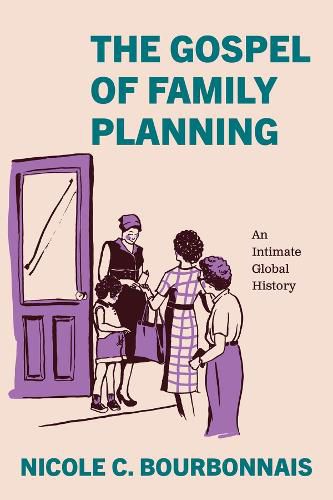Readings Newsletter
Become a Readings Member to make your shopping experience even easier.
Sign in or sign up for free!
You’re not far away from qualifying for FREE standard shipping within Australia
You’ve qualified for FREE standard shipping within Australia
The cart is loading…






An engaging, insightful history of the family planning movement and its connection to broader social and political developments across the globe.
Historical accounts of the twentieth-century global family planning movement have largely credited political activists and government agencies as the key forces shaping the movement. In The Gospel of Family Planning, however, historian Nicole C. Bourbonnais shifts our attention to frontline workers-doctors, social workers, nurses, consultants, church groups, and volunteers-who, she compellingly shows, played a central and complicated role.
Through their untapped histories and collective biographies, Bourbonnais visits clinics, doorsteps, and bedrooms, revealing the every day, ground-level workings of the movement. Telling a global history that spans decades, she traces the shift from grassroots family planning activism to state population control to reproductive rights and justice, highlighting the fine line between coercion and liberation that shaped efforts to intervene in people's reproductive lives. Throughout the book, Bourbonnais invites readers to consider how major ideological struggles and the intertwined histories of feminism, development, decolonization, nationalism, racism, and the Cold War shaped personal relationships and intimate interactions.
$9.00 standard shipping within Australia
FREE standard shipping within Australia for orders over $100.00
Express & International shipping calculated at checkout
An engaging, insightful history of the family planning movement and its connection to broader social and political developments across the globe.
Historical accounts of the twentieth-century global family planning movement have largely credited political activists and government agencies as the key forces shaping the movement. In The Gospel of Family Planning, however, historian Nicole C. Bourbonnais shifts our attention to frontline workers-doctors, social workers, nurses, consultants, church groups, and volunteers-who, she compellingly shows, played a central and complicated role.
Through their untapped histories and collective biographies, Bourbonnais visits clinics, doorsteps, and bedrooms, revealing the every day, ground-level workings of the movement. Telling a global history that spans decades, she traces the shift from grassroots family planning activism to state population control to reproductive rights and justice, highlighting the fine line between coercion and liberation that shaped efforts to intervene in people's reproductive lives. Throughout the book, Bourbonnais invites readers to consider how major ideological struggles and the intertwined histories of feminism, development, decolonization, nationalism, racism, and the Cold War shaped personal relationships and intimate interactions.